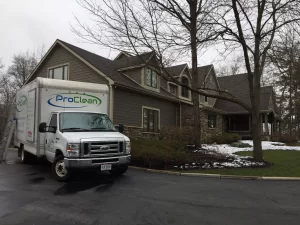Flooding is a significant problem for many individuals in the United States. According to Water Damage Defense, around 98 percent of basements in houses in the United States are prone to flooding and will experience water damage at some point in their lives. And, regardless of how little the flood is, it may be disastrous, leaving your property vulnerable to damage and mold growth.
Whether the flooding is the result of heavy rain, a clogged sewer line, or a broken pipe, it is vital to deal with the flood as soon as possible to minimize more water damage. Here are the first actions to do if your house has been flooded.
Prioritize your safety.
Floodwater poses a number of threats to your safety and health. Electricity that has come into contact with water has the potential to be fatal. Before entering the floodwater, turn off the main breaker and any other individual fuses in your home. If the water level is too high, get a trained electrician to inspect and assess the condition of your electrical box. Don’t forget to put on safety equipment such as gloves, boots, and a mask. Because you don’t know what contaminates the water, it’s critical to protect yourself from any dangerous compounds that may be there.
If you have kids, make sure they don’t eat anything that has been in contact with water for an extended period of time. Move salvageable furniture and other items to a higher level.
Determine the source of the flooding and put an end to it.
After you’ve turned off the main power supply, the next step is to figure out what’s causing the flooding and how to keep more water from entering your property. This will help to avoid future water damage to your property. Turn off your home’s main water supply if a leaking or broken pipe is the cause of a house flood.
Take photographs of the damage.
Before you begin cleaning up your property, make a film or take pictures of anything that has been harmed by floodwater. Water damage documentation is essential for insurance claims. Take pictures of the damaged objects, warped walls and floors, and other water damage in your home. Then, save a copy of every document you’ve given to your insurance agent.
Make contact with your insurance company.
Once you’ve obtained all the necessary documents, notify your insurance carrier of the incident. Following that, your insurance company will send an adjuster to inspect the damage and estimate the losses. Seek the help of a reputable water damage expert. You might be tempted to undertake the water removal and cleaning yourself. When it comes to water damage, though, timing is of importance. The sooner and faster you respond to the flood, the less harm it will inflict. Calling a reliable water damage expert.



